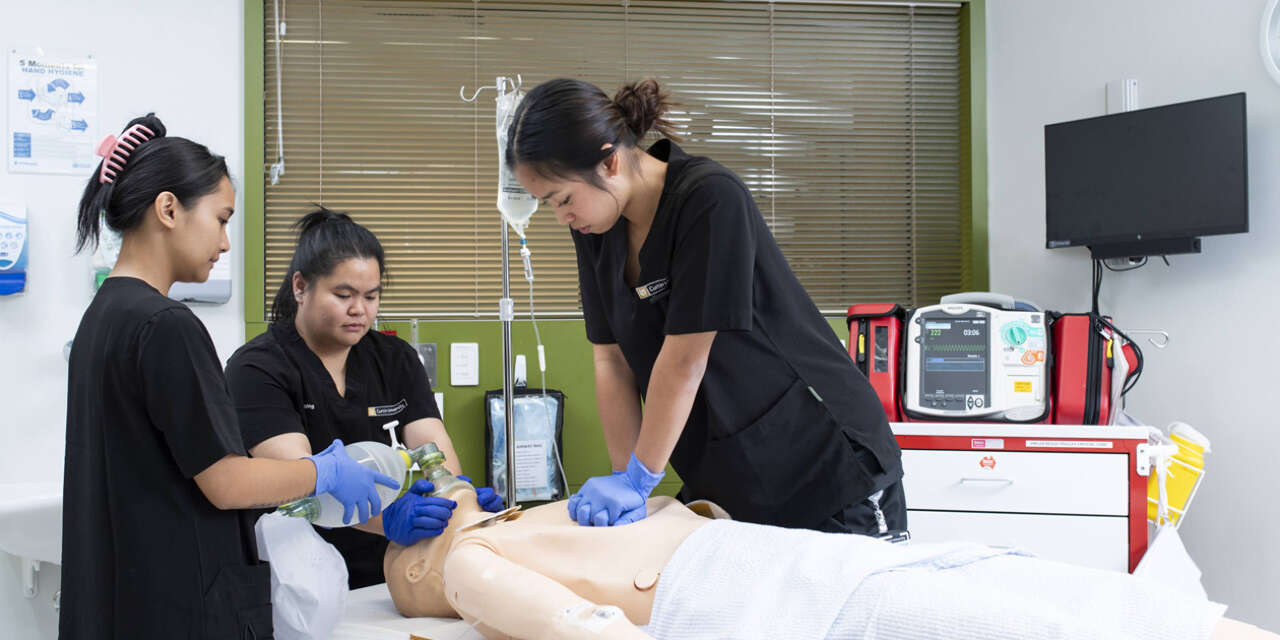Overview
Overview
The Critical Care Nursing specialisation is available to study as a graduate certificate and as part of the Master of Advanced Practice. It is designed for registered nurses who are interested in developing greater capabilities in complex clinical decision-making.
Specialist streams include:
- Emergency
- Intensive Care
- Coronary Care
- Paediatric Intensive Care
- Neonatal Intensive Care
- Paediatric Emergency*
- High Dependency*
(*subject to availability)
Key components include:
- the core concepts and physiology of normal homeostatic function
- pathophysiology, pathogenesis and aetiology of conditions
- interventions and management strategies used to restore homeostasis.
This specialisation also focuses on developing capabilities in complex clinical decision-making, clinical leadership, evidence-informed specialty practice, patient advocacy and holistic specialty practice.
The Graduate Certificate in Critical Care Nursing is offered as an online course studied on a part-time basis only, as concurrent employment is required. We recommend that you study one or two units per semester.
Note: This Graduate Certificate is not available to international students studying in Australia on a student visa.
What you'll learn
- analyse critically, and evaluate advanced concepts of specialty nursing practice; integrate expert knowledge and integrated understanding to demonstrate competency at a level in accordance with specialty competency standards
- critically analyse, reflect on and synthesise the environmental, physical and psychosocial aspects of the individual for effective clinical decision making; recognise own abilities and level of professional competence
- investigate, analyse and synthesise complex evidence and scientific literature to inform decision making in specialty practice
- integrate advanced communication skills within a legal and ethical framework related to complex clinical issues in area of specialty; interpret and transmit knowledge, skills and ideas to specialist and non-specialist audiences
- effectively anticipate, plan for and use complex technology applications relevant to specialty practice
- integrate autonomous, expert judgement, adaptability and responsibility as a lifelong learner in specialty practice; participate in research and critically appraise research findings and incorporate evidence based knowledge into clinical practice
- critically appraise, evaluate and incorporate national and global health issues and strategic health care directions into specialty nursing practice
- incorporate culturally aware and respectful specialty care to multicultural groups and indigenous communities
- incorporate advanced theoretical and specialist knowledge and judgment, including advanced leadership and autonomy into specialty practice; work professionally in specialty practice demonstrating expert judgement, leadership and independence as a nurse in area of specialty; act as an experienced positive role model to peers and other members of the healthcare team

